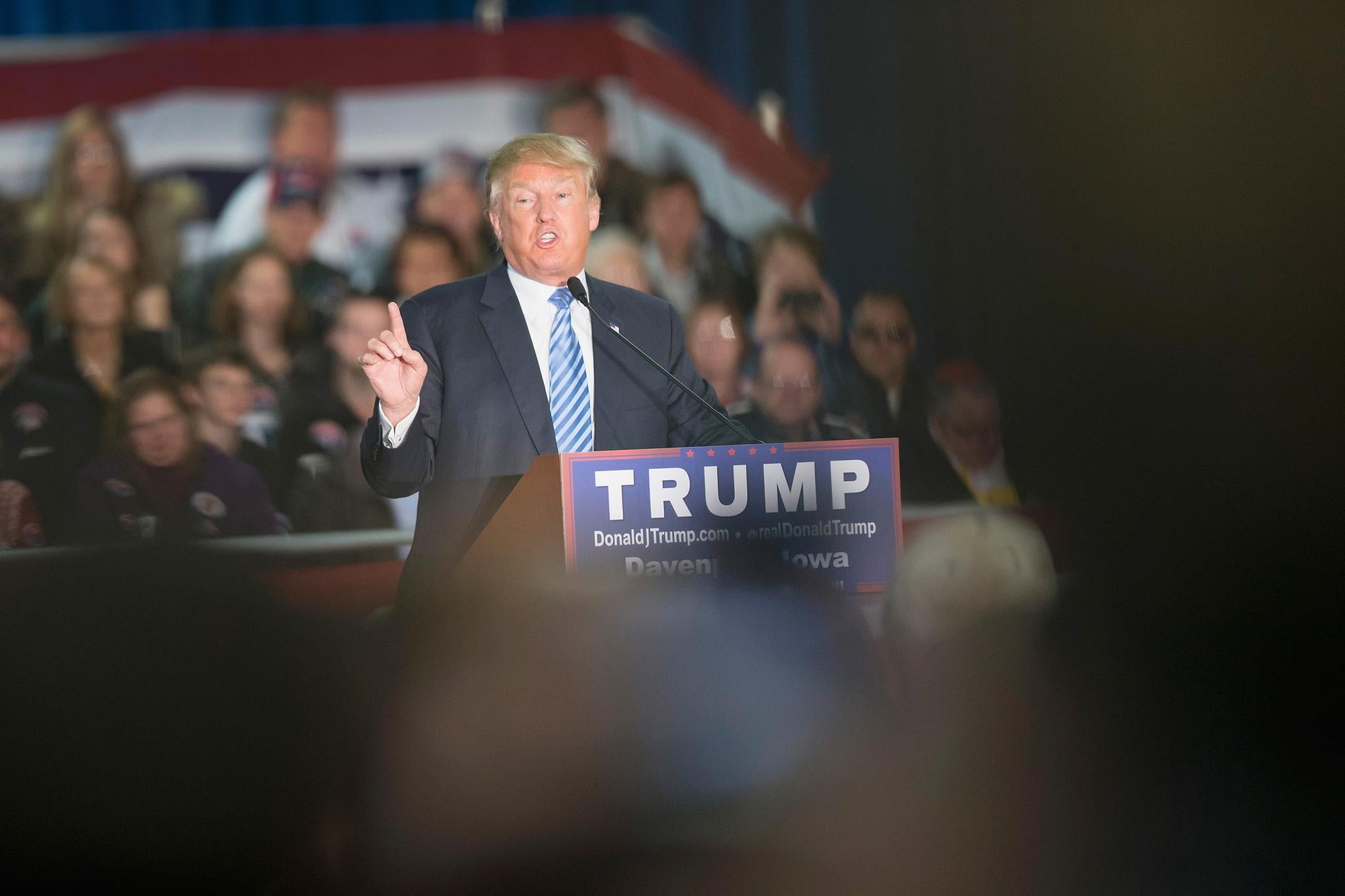
Two Black women, Lynette Hardaway and Rochelle Richardson, have become a viral sensation since they declared their support for the presidential candidacy of Donald Trump. On the stump for Trump, both women, also known as Diamond and Silk, sing songs, celebrate Trump’s immigration policy to build a huge wall at the U.S.-Mexico border, and encourage Black people to join the Republican Party. Lest these sisters’ melodic enthusiasm for Trump become a distraction, the real questions are: What has Trump done for Black women lately? How will a Trump presidency make Black women’s lives better?
When I asked ESSENCE political contributor and Democratic strategist, Donna Brazile, she retorted, “What will Trump do for Black women and their families? Nothing. He’s opposed to raising the minimum wage, paid sick leave, and opposed to ACA [the Affordable Care Act].” Tara Wall, also an ESSENCE political contributor and former GOP strategist, offered a more measured take on Trump, but made it clear that she had major reservations about his effectiveness. For instance, Trump does believe in saving the Social Security system, unlike many of his Republican counterparts who favor shifting Social Security funds into private retirement accounts. When I asked Wall about Trump’s views on the ACA and Social Security, she remarked, “The push to repeal [Obamacare] speaks to affordability. But most conservatives believe that certain social safety nets still need to be in place. These two are not at odds with each other.”
Trump’s tax policies do seem to favor low-income families. He proposes no income tax for single people making under $25,000 a year, and no income tax for married couples that make less than $50,000 a year. After that he uses a progressive tax rate that caps at 25 percent. He also favors exceptionally low corporate taxes, such that all businesses, whether large or small, would be taxed at a rate no higher than 15 percent.
Black women earn a mere 63 cents on the White male dollar. Could Trump’s tax incentives put more money into the hands of working class Black women, and Black women who own small businesses? Wall says, “lower tax rates would help Black women small business owners,” since, “small businesses are sometimes taxed at a higher rate than large corporations.” However, Brazile rightfully points out that “low taxes or no taxes often lead to a hidden tax to make up for lost revenue.” Trump’s tax plan, she suggests, “is geared to those who already have money and already have a seat at the table.”
Recently, Trump met with a group of Black pastors, who seemed eager to have a seat at Trump’s table. Initially, his campaign announced that these 100 Black pastors would endorse Trump for President (though this claim was later challenged by several pastors within the group). Along with a group of more than 100 progressive Black Christian pastors and religious thought leaders, I helped pen an open letter criticizing this meeting, in light of Trump’s vocal antagonism to the Black Lives Matter movement.
I asked Brazile whether meeting with Black pastors was an effective strategy for addressing the concerns of their predominantly Black female constituencies, especially since Black women were the top voting demographic in 2012. “You can’t rewrite the script from 1960. It’s an old premise,” Brazile told me. “The premise [appealing to Black churchgoers] should have been discarded when Obama won. Obama’s campaign was organic. He ignited a movement.” The idea that Black church leaders could simply crown the next political leader went out with Obama. “Even Hillary has to earn it,” Brazile made clear. “You don’t inherit anything anymore.”
Still, she applauded Trump for reaching out to Black communities. “The Black community is better when we have leverage.” Wall agreed but cautioned, “How you reach out is important. How do you reach out to all constituencies in Black America? Black America is not one idea.” She added, “The party is failing miserably at reaching out to Black women. Just saying, ‘I’m meeting with this group and getting their endorsement’ is not enough.” Wall noted that Trump needs to focus his message to Black women on the major issues that we care about: “economy, safety, education, and social justice.”
On these matters, Trump has said nothing. Instead, he has tried to entice Black women into taking him seriously by subjecting us to a singing and dancing Black women’s duo. But these Black women are not, in the words of Ntozake Shange, “singing a Black girl’s song.” Black women need policies that help us to make a decent living for our families, educate our children in good, safe schools, house them in safe neighborhoods, and not rip our families apart through violent over-policing and harshly punitive criminal justice measures. Black women’s vote is critical to the success of candidates on both sides of the aisle. Everyone should be talking to us. And when they start talking, they need to say something that will help them #earnthisvote.
Brittney Cooper (@professorcrunk) is a contributing writer at Salon, and teaches Women’s and Gender Studies and Africana Studies at Rutgers.





